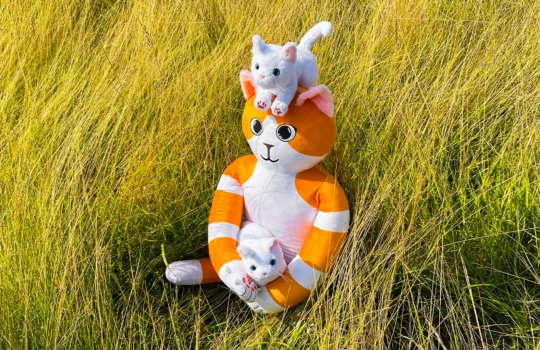Handmade Plush Toys: Craftsmanship vs. Mass Production
Introduction
In the world of plush toys, two distinct categories stand out: handmade and mass-produced. Each offers unique qualities, catering to different preferences and needs. This article delves into the differences between these two types, focusing on craftsmanship, customization, quality, and ethical considerations.
🧵 Understanding Handmade Plush Toys
Craftsmanship and Attention to Detail
Handmade plush toys are the result of meticulous craftsmanship. Each piece is carefully designed and sewn, often by skilled artisans. This process allows for intricate details and personalized touches that mass production cannot replicate.
Customization and Personalization
One of the significant advantages of handmade plush toys is the ability to customize. Whether it’s a specific color, size, or design, artisans can tailor the toy to meet individual preferences, making each piece unique.
Quality and Materials
Handmade toys often use high-quality, natural materials, ensuring durability and safety. The choice of fabrics and fillings can be more diverse, allowing for a plush feel and longevity.
Ethical Production
Many handmade plush toys are produced in small batches, often by independent artisans or small businesses. This approach supports ethical labor practices and sustainable production methods.
🏭 The World of Mass-Produced Plush Toys
Efficiency and Scalability
Mass production of plush toys involves automated processes that can produce large quantities quickly. This efficiency makes them widely available and affordable.
Standardization and Limited Customization
While mass-produced toys are consistent in design, they offer limited customization options. The focus is on creating products that appeal to a broad audience.
Cost and Accessibility
Due to economies of scale, mass-produced plush toys are generally more affordable. They are readily available in various retail outlets, making them accessible to a wide range of consumers.
Quality Control
Manufacturers implement strict quality control measures to ensure safety standards are met. However, the quality can vary depending on the brand and manufacturing practices.
🧩 Comparing Handmade and Mass-Produced Plush Toys
| Feature | Handmade Plush Toys | Mass-Produced Plush Toys |
|---|---|---|
| Craftsmanship | High attention to detail | Standardized production |
| Customization | Fully customizable | Limited customization |
| Materials | High-quality, often natural | Standard synthetic materials |
| Production Scale | Small batches | Large-scale manufacturing |
| Cost | Higher due to labor and materials | Lower due to economies of scale |
| Availability | Limited, often online or boutique stores | Widely available in stores and online |
| Ethical Considerations | Often produced by small businesses | Varies; depends on manufacturer |
🌟 Choosing the Right Plush Toy for You
When deciding between handcrafted and mass-produced plush toys, consider the following:
- Personalization: If you desire a unique, customized toy, handmade options are ideal.
- Budget: For affordable and widely available choices, mass-produced toys are suitable.
- Ethical Values: Supporting small businesses and ethical production practices can influence your decision.
- Purpose: Consider the intended use—collectible items may benefit from the uniqueness of handmade toys, while everyday playthings might be more practical from mass production.
🌟 Handmade Plush Toys Suggestions
If you’re looking for handcrafted plush toys, check out Fimico’s Palm Stuffies collection! Each piece is meticulously handmade, offering you charming designs and handful comfort.
Palm Stuffies: https://fimicoworld.com/product-category/palm-stuffies/
🧠 Conclusion
Both handmade and mass-produced plush toys have their merits. Handmade toys offer uniqueness and craftsmanship, while mass-produced toys provide affordability and availability. Your choice should align with your personal preferences, values, and intended use.

